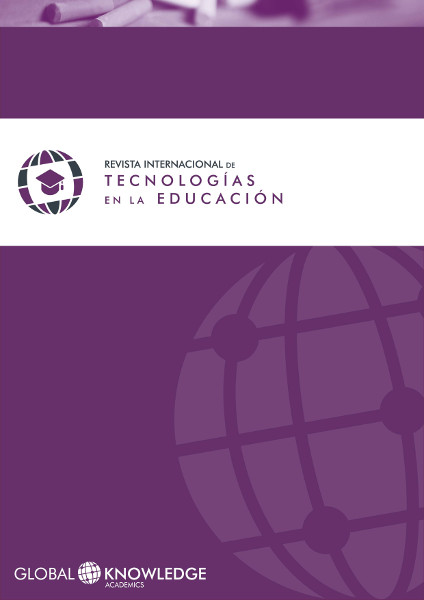Evaluation of the Health Management Course EAD / UAB / IFSC
DOI:
https://doi.org/10.37467/gka-revedutech.v4.138Keywords:
Distance Education, Course Evaluation, Teaching-Learning ProcessAbstract
This article aims to present the preliminary results of the assessment of the Specialization Course Lato Sensu Management in Health, for the realization of a research project at the Federal Institute of Santa Catarina (IFSC). The results obtained from the evaluation questionnaire three courses this course, offer the solid benefits to justify the establishment of a permanent process of evaluation of this course. The methodology was used the case study with a qualitative and quantitative approach, with the electronic questionnaire available on the Virtual Learning Environment (AVEA) and observing the interactions that occur between students, teachers and other actors involved in the development of that course. Our analysis had the theoretical support of studies Mattar and Czeszak (2013).
Global Statistics ℹ️
|
379
Views
|
180
Downloads
|
|
559
Total
|
|
References
Brasil. Lei 9.394/1996 Estabelece as Diretrizes e Bases da Educação Nacional. Disponível em <http://www.planalto.gov.br/ccivil_03/leis/l9394.htm > Acesso em 01 de abr. 2015.
Brasil. Decreto 5.622, de 2005. Regulamenta o art. 80 da Lei no 9.394, de 20 de dezembro de 1996, que estabelece as diretrizes e bases da educação nacional. Disponível em <http://www.planalto.gov.br/ccivil_03/_ato2004-2006/2005/Decreto/D5622.htm > Acesso em 01 de abr. 2015.
CAPES – Programa Nacional de Formação em Administração Pública – PNAP, 2014. Disponível em <http://www.capes.gov.br/educacao-a-distancia/pnap> Acesso em 05 de jul. 2014.
Ferreira, M. M.I.L.L, D. Institucionalização da Educação a Distância no Ensino Superior Público Brasileiro: Desafios e Estratégias. In: Educação a Distância: meios, atores e processos. Fernando Selmar Rocha Fidalgo et al, organizadores. Belo Horizonte: CAED – UFMG, 2013.p. 362.
Freire, Paulo. Pedagogia do Oprimido. 13ª ed. Rio de Janeiro: Paz e Terra, 1985. 218 p.
IFSC – Curso de Especialização em Gestão em Saúde – Pós graduação Lato Sensu. 2014. Disponível em < http://www.ifsc.edu.br/images/stories/file/Conselho%20Superior/resolucoes%202010/Resolucao07%20-%20Aprova%20Pos-Graduacao%20em%20Saude.pdf Acesso em 04 de jul. 2014.
Litto, Fredric M. Aprendizagem a distância. São Paulo: Imprensa Oficial do Estado de São Paulo, 2010.
Mattar, João; Czeszak, Wanderlucy. Avaliação em Educação a Distância. In: FARIA, Evangelina Maria Brito de; Sousa, Hercilio de Medeiros; Fernandes, Terezinha Alves (Org.). Educação a Distância: Textos Aplicados a Situações Práticas. João Pessoa: Grafica São Matheus, 2013. Cap. 5. p. 75-98.
Moore, M.; Kearsley, G.; A educação a distância: uma visão integrada. Trad. Roberto Galman. São Paulo: Thomson Learning, 2007.
Moran, José Manuel; Masetto, Marcos T.; Berhens, Marilda Aparecida. Novas Tecnologias e mediação pedagógica. 13. ed. Campinas: Papirus, 2007.
Pretto, N. L. Uma escola com / sem futuro. Educação e Multimídia. Campinas: Papirus,1996.
Ruhe, Valerie; Zumbo, Bruno D.. Avaliação de educação a distância e e-learning. Porto Alegre: Penso, 2013. 334 p. Tradução: Fernando de Siqueira Rodrigues.
Silva, Bento Duarte; Gomes, Maria João; Silva, Ana Maria Costa e.. Dinâmica dos três Cs na avaliação de cursos em elearning: compreensão, confiança e complementaridade. In.: Silva, Marco; Santos, Edméa.. Avaliação da aprendizagem em educação online – fundamentos, interfaces e dispositivos, relatos de experiências. São Paulo: Edições Loyola, 2006.
UAB. Universidade Aberta do Brasil. Dispõe sobre os Cursos ofertados no polo. 2014. Disponível em <http://uab.capes.gov.br/index.php?option=com_wrapper&view=wrapper&Itemid=10 > Acesso em 23 de jun. 2014. Acesso restrito.
Downloads
Published
How to Cite
Issue
Section
License
Copyright (c) 2017 Revista Internacional de Tecnologías en la Educación

This work is licensed under a Creative Commons Attribution-NonCommercial-NoDerivatives 4.0 International License.
Those authors who publish in this journal accept the following terms:
- Authors will keep the moral right of the work and they will transfer the commercial rights.
- After 1 year from publication, the work shall thereafter be open access online on our website, but will retain copyright.
- In the event that the authors wish to assign an Creative Commons (CC) license, they may request it by writing to publishing@eagora.org







